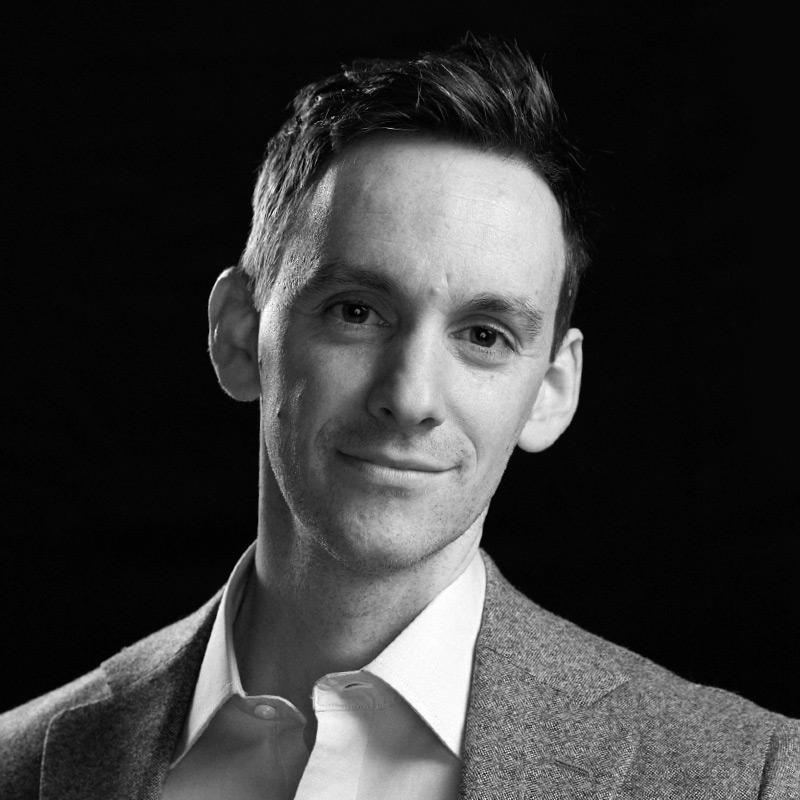
It is a general rule of thumb that richer societies are happier societies. This is true across countries, as GDP and life satisfaction are highly correlated. And it is true across time. Countries get happier as they get richer. But there is a caveat to this general principle. Which is that the United States is not nearly as contented as its gross national income would predict.
In fact, the U.S. is, as we’ve covered on this show, in a bit of a gloom rut. It has now been nearly two decades since a majority of Americans have told pollsters at NBC that they’re satisfied with the way things are going. This hope drought has no precedent in modern polling. NBC itself reported that “We have never before seen this level of sustained pessimism in the 30-year-plus history of the poll.”
Polls show that faith in government, business, and other institutions is in free fall—especially among conservatives. But they also show that conservatives are generally happy with their life and in their relationships. If conservatives have happiness without trust, American progressives seem to have trust without happiness.
In a recent paper called “The Politics of Depression,” published by the journal Social Science & Medicine–Mental Health, the epidemiologist Catherine Gimbrone and several coauthors showed that young progressives are significantly more depressed than conservatives, have been for years, and the gap is growing over time. Other studies, including the General Social Survey, show the same.
Why are young progressives so sad? Today’s guest is Greg Lukianoff, the president and CEO of the Foundation for Individual Rights and Expression (FIRE) and coauthor of ‘The Coddling of the American Mind.’ He has written intelligently, critically, and emotionally about happiness, depression, politics, and progressivism.
If you have questions, observations, or ideas for future episodes, email us at PlainEnglish@Spotify.com.
In the following excerpt, Derek talks to Greg Lukianoff about the trend he’s noticed in mental health among young progressives.
Derek Thompson: I’ve wanted to talk to you for a while. One of the most interesting facts about the electorate and American politics in general, I think, is this happiness gap between progressives and conservatives. It seems like, from several reports, there has been a happiness gap between liberals and conservatives—maybe I should say progressives and conservatives, to distinguish from classical liberals. And it seems like this gap is accelerating. Before we go into the why, let’s make sure that we nail down the what. How do we know for sure that progressives are more likely to be anxious and/or depressed than conservatives?
Greg Lukianoff: Multiple studies, including FIRE’s own massive survey of student opinion. We do the largest survey of student opinions on freedom of speech each year, and we added to that questionnaire some questions about anxiety, depression, to get down to that. But of course, it also matches what other studies have shown, whether you’re talking about Pew, whether you’re talking about some of the stuff that my coauthor Jonathan Haidt has found as well. It’s been quite consistent that there’s always been somewhat of a gap between progressive and conservative self-reports of happiness, but it’s gotten much more severe in the past 12 years or so.
Thompson: In your opinion, is the best way to describe this gap as a gap in happiness, well-being, contentment, or is it a gap in negative conditions like depression, anxiety? Do you have a preferred way to describe what the thing is here that we’re trying to talk about?
Lukianoff: I’m perfectly fine calling it a happiness gap, to say it more colloquially, but it’s more of a mood disorder gap. Because mood disorders are important to distinguish, because if you’re talking about things like schizophrenia or other psychological maladies, those are a different kettle of fish quite dramatically. But anxiety and depression are the key ones that we’re interested in here. And definitely all the evidence points to there being a substantial gap in anxiety and depression between progressives and conservatives, with progressives experiencing substantially more depression and anxiety than conservatives.
Thompson: And can you help us nail down when it is exactly that this, let’s call it a happiness gap, between progressives and conservatives started to expand? Because it seems to me like from the data that I look at, it was a relatively steady gap for several years, and only in the last few years has there really been this yawning of the gap. How would you characterize the timing of that divergence?
Lukianoff: At least what I looked at, it looked like you start seeing a divergence accelerating around 2012, but definitely it’s gotten a lot bigger in the past three or four years.
Thompson: Greg, you have a theory about what is causing this gap, and the name of your theory is reverse CBT. I think before we talk about reverse CBT, we should probably talk about what CBT is. What is CBT exactly, and how has it helped you?
Lukianoff: Sure, OK. My interest in this comes primarily from some realizations I had dealing with my own suicidal depression in 2007 and recovering from it in 2008. And I talk about it in some ugly detail in my book with Jonathan Haidt, Coddling of the American Mind. And I went to the hardware store to figure out a foolproof way to kill myself. And I had to be hospitalized for a while, and as I was recovering, I started doing cognitive behavioral therapy.
And cognitive behavioral therapy, it’s an interesting intervention. It’s one of the best-studied interventions. I think it is the best-studied intervention for anxiety and depression ever invented, other than pharmaceuticals. And what it is, and it seems deceptively simple, but essentially the realization was that anxious and depressed people have more negative exaggerated chatter in their head. And there are names for these different types of negative exaggerated chatter, and they’re called cognitive distortions. And some of them are exactly like what they sound like. So, catastrophizing, for example.
So when something relatively minor that’s bad happens to you and your brain immediately screams at you, “This is because the world is fundamentally broken.” And it’s like, “OK, I should talk that down a little bit.” Or when you have a bad date, or you think you had a bad date and you just kind of assume, you immediately go to “I’m going to die alone. This person obviously hates me.” That’s actually called mind reading. I’m going to die alone is called fortune-telling. The overall tone of this is catastrophizing.
And so some cognitive distortions include overgeneralization, binary thinking, which is everything is either zero or one. It has to be everything’s fantastic or everything’s a disaster. Blaming, discounting positives, the idea that essentially you create a narrative that there is no upside, everything’s negative. And what was really amazing about this is that it’s not a question of understanding it intellectually. You have to actually do the work and get in the habit of talking back to your exaggerated catastrophizing thoughts.
And by talking back to them, what I mean is the actual exercise is when you have one of these exaggerated thoughts, you just go through this process of writing it down, labeling it in terms of what kind of cognitive distortion it is, and then trying to reframe it, not with the power of positive thinking, but really with the power of rational thinking. Being like, “Is this really ‘I’m going to die alone’? Is this really a sign that the world is broken, or is it something more mundane as I didn’t think that date went very well and now I’m kind of sad about it?”
This was transformative for me. I used to get pretty severe depressions almost every year. I barely get them at all anymore. And while I was studying CBT, I was working on campuses and I was seeing situations in which it seemed like the adults in the room, the residence hall directors, for example, or some of the administrators who interact with the students the most, the ones also most likely to punish students and professors for their speech, seemed to be kind of modeling behaviors that included catastrophizing, definitely a ton of overgeneralizing, a lot of binary thinking.
Basically, there wasn’t a cognitive distortion I’m familiar with that I didn’t see kind of modeled for younger people. But back in 2008, 2009, the students weren’t buying it. They were rolling their eyes at adults like they always had. But right around 2014, I started noticing a lot more students showing up on campus demanding censorship, but using medicalized justifications. That essentially “This speaker coming to campus is a catastrophe, and it will be mentally harmful to people if they come and people will not be able to recover from it.” And that’s when I started working with John Haidt. And so, we wrote the original article “Coddling of the American Mind” in 2015, and unfortunately things got much, much worse after that.
This excerpt was edited for clarity. Listen to the rest of the episode here and follow the Plain English feed on Spotify.
Host: Derek Thompson
Guest: Greg Lukianoff
Producer: Devon Baroldi
Subscribe: Spotify

